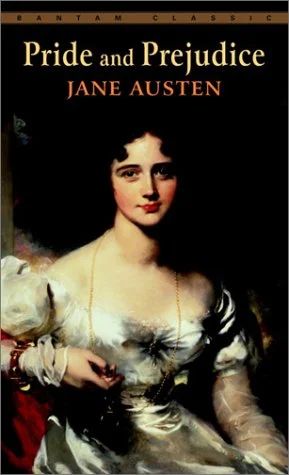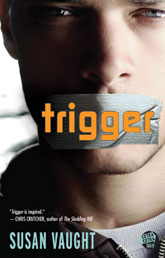Book Review on Pride and Prejudice by Jane Austen
Heathcliff and Cathy. Rochester and Jane. Do any of these names sound familiar? If they do, then the names Elizabeth and Darcy should rouse some memories too. Written by Jane Austen in 1775, Pride and Prejudice weaves a tale of love formed while characters clash.
When a neighboring house is let out at last to a certain Mr. Bingley, Mrs. Bennet can hardly contain her excitement at the prospect of marrying off one of her five daughters to a wealthy man. At the ball, it is obvious that Mr. Bingley holds an attraction for Jane, the oldest daughter, and vice versa. The excitement grows as the attendees realize that Mr. Bingley brought his prosperous friend, Mr. Darcy. The eager crowd of people rush to make his acquaintance, only to pronounce Darcy the most disagreeable and arrogant man. “[…] he was looked at with great admiration […], till his manners gave a disgust […] discovered to be proud, to be above his company […]” (pg. 11). The protagonist, Elizabeth Bennet, is an intelligent, witty, young woman who is offended by him when she finds out that Darcy feels a strong condescension towards the country people. Elizabeth’s attitude is filled with venom because of his obnoxiousness. When she hears from Wickham, a soldier whom she is attracted to that Darcy has misused him in the past, Elizabeth jumps at the chance to solidify her reasons to hate him. “I had not thought Mr. Darcy so bad as this— though I have never liked him. I had not thought so very ill of him. I had supposed him to be despising his fellow-creatures in general, but did not suspect him of descending to such malicious revenge, such injustice, such inhumanity as this” (pg. 70). Meanwhile, through many chanced meetings, Darcy finds himself liking Elizabeth’s wit and fiery spirit and proposes to her. Because of his pride, the reasons he state for proposing to her are very belittling. To his shock, he is rejected vehemently by Elizabeth. Will they ever truly like each other and look past their prejudices?
I enjoyed reading this book because the language Austen writes in is no longer in use today. The language used is formal yet easy to understand, helping modern day readers build better grammar. It lets readers gain insight into a world past, its social customs and modesty. It is very interesting how the people used to subtly insult each other and yet still seem civil. Their wit is very refreshing as people today no longer apply these skills. Another thing I like about this story is that it’s very realistic. It addresses issues that are still problems today, such as prejudice and pride. Yet in the end, if a person looks past society’s preconceptions, one just might find love. I recommend this book to people who want to read a classical example of romance. The instances where the two main characters try their wits against each other are just hilarious. This book is very smooth reading, no bumps in the plot with any major tragedies. Therefore, many might say that this book is boring, yet it is the mediocrity that is so appealing at the same time. It lets us gain a true insight into courtship and love of a time long gone, without all the unnecessary drama.

